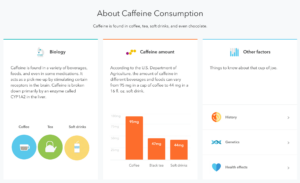A morning cup of coffee is its own reward, but a new study by researchers sweetens the deal a bit concluding that drinking  more coffee – even decaffeinated coffee – is associated with a longer life.
more coffee – even decaffeinated coffee – is associated with a longer life.
The study by researchers at Harvard looked at mortality in a group of more than 200,000 nurses and doctors involved in a 30-year study that tracks health outcomes, diet and lifestyle. Among the many things tracked was coffee consumption, measured in cups a day.
In the first pass at the data the researchers compared those who drank one to five cups of coffee, and found a clear association with a lower risk for early death. That wasn’t actually new. There have been many studies that looked at the benefits of drinking a moderate amount of coffee. But what was striking about this study were the results when researchers looked at heavy coffee drinkers.
At first the researchers didn’t find the same association when they looked at individuals who drank more than five cups of coffee each day. But, perhaps thinking of the cliche of coffee swilling smokers, the researchers eliminated smokers from the dataset.
They still found the same association with moderate coffee consumption, but it was what they found among the heavy coffee drinkers that surprised them. Those who drank more than five cups of coffee also had a lower risk of an early death.
The study showed that individuals who drank from one to three cups of coffee had an eight percent lower risk for premature death; those who drank three to five cups had a 15 percent lower risk; while those who drank more than five cups a day had a 12 percent lower risk.
The results persisted even when correcting for age, sex and diet.
The study authors have said that while promising, the data doesn’t indicate whether there is a causal link between drinking coffee and lower mortality. There clearly is more work needed to look into that, but this study adds to the list of others that found associations between drinking coffee and beneficial outcomes including lower risks for type 2 diabetes, liver cancer, lethal prostate cancer, cardiovascular disease and certain neurological diseases.
 Java and Genetics
Java and Genetics23andMe’s wellness reports offers you insight into how your genetics might influence your consumption of caffeine.The amount of caffeine you consume – whether it’s from coffee, tea, or soft drinks – may be influenced by your genes. 23andMe’s caffeine report looks at variants in the CYP1A2 and AHR genes involved in regulating an enzyme that breaks down caffeine, and other substances, in the body.Find out more about 23andMe’s Wellness reports and other offerings here.



